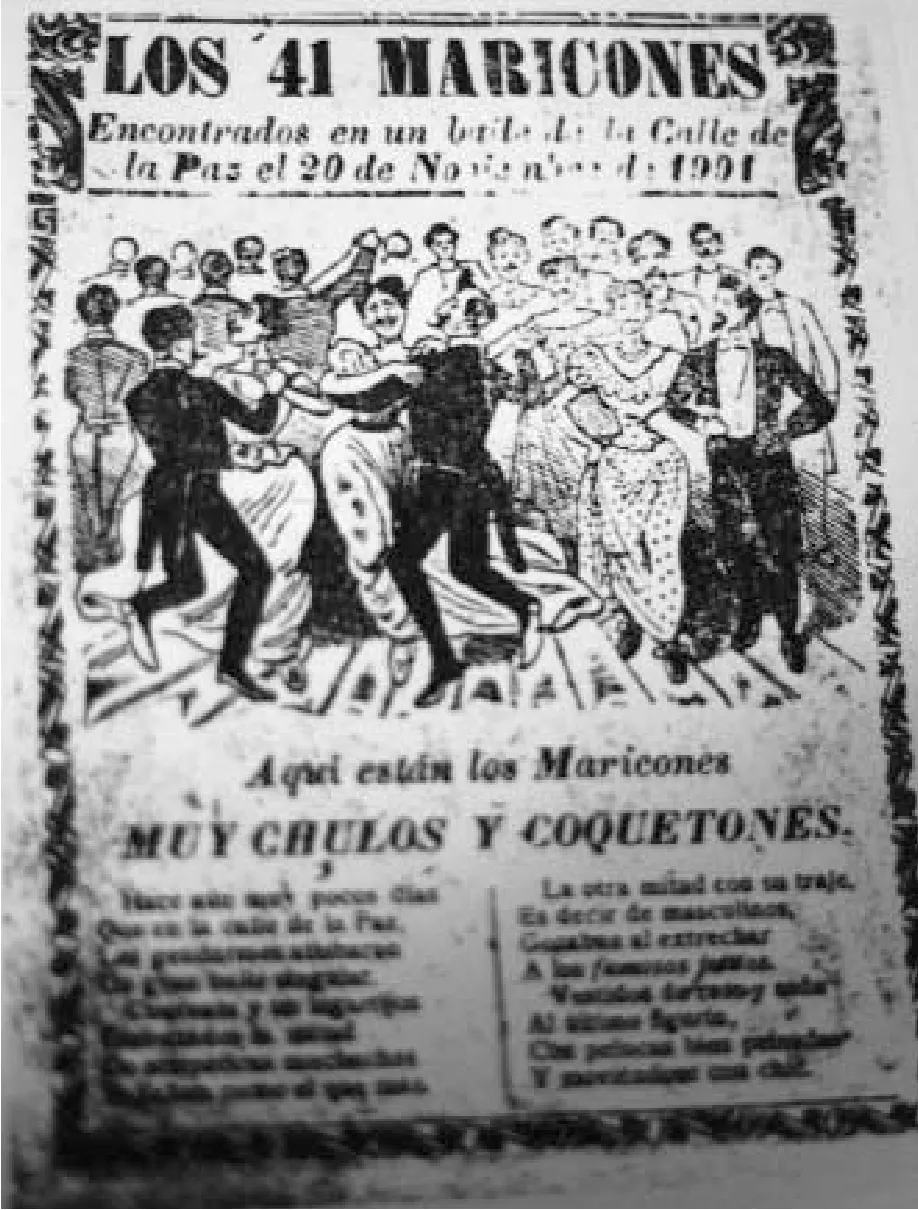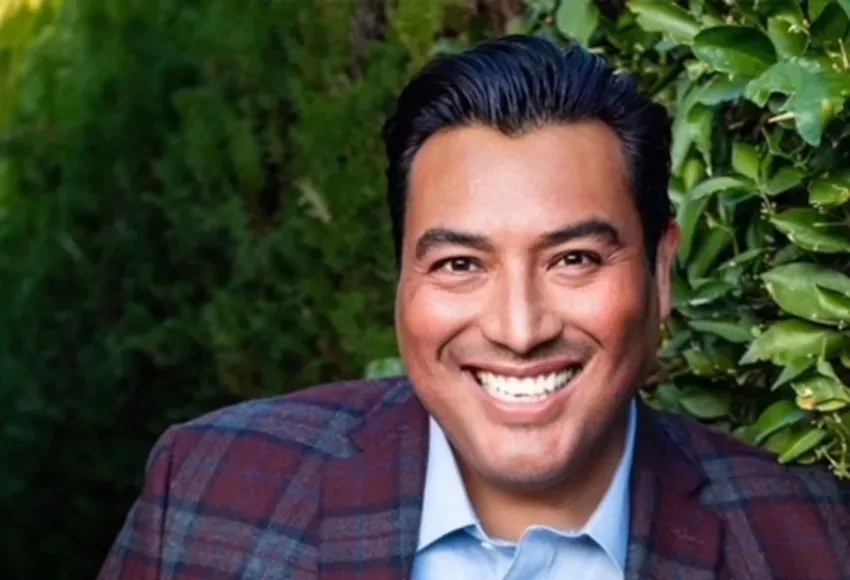Until recently, Alberto B. Mendoza hated the number 41. He cringed if his dinner bill or hotel room number contained it, and with the countdown to his 41st birthday, he was dreading the year to come.
His hatred of the number started when he was a kid. Growing up on the San Diego-Tijuana border, he was excited when some friends nicknamed him 41. That is, until his father told him what it meant.
"When he heard them, he called me into the garage and said, 'Why did they call you that? They're calling you a faggot, are you a faggot?'" Mendoza remembers. "I just remember wanting to disappear and crawl into a hole."
Mendoza, who is Gay, was not ready to be outed. He came out when he was 19, and for decades more he hated the number 41.
During that time, he achieved much, including serving as the executive director of the National Association of Hispanic Journalists; he is now the managing editor of JSK Journalism Fellowships at Stanford University.
When he was set to turn 41, he told a friend over dinner how much he was dreading the milestone. That's when he learned the story of how the slur came to be.

The dance of the 41
The origin story of "41" as an anti-Gay slur goes back to 1901 in Mexico, when a secret society of Gay men would meet to indulge in drinking, dancing, sex, and other merriment. It was during these gatherings that they could be themselves – talk how they wanted, dress how they wanted, and be openly affectionate with their friends and lovers. The group hosted an annual ball, with half dressing in women's clothing while the others dressed in tuxedos.
It was during the group's ball in 1901 that police raided the party and arrested 42 men.
However, the record mysteriously changed from 42 arrests to just 41. There is no concrete proof, but it's long been believed that one of the men at the party was Ignacio de la Torre y Mier, the closeted son-in-law of Mexican President Porfirio Díaz. To avoid a political uproar and save face, the story goes that Díaz had his son-in-law taken out of jail and his arrest hidden.
The remaining 41 men were not so lucky, and newspapers referred to them as the "41 maricones" (the Spanish equivalent of "faggot"). Those wearing dresses were forced to sweep the streets, unprotected from an angry homophobic public, and many of the men were sent to work camps in the Yucatán to support Mexican solders fighting the Mayans. Homosexuality and men dressing in women's clothing were not illegal, but the government felt it had to make a statement against the men's immorality.
41 in popular culture
According to a report on the 41, "They were wearing elegant ladies' dresses, wigs, false breasts, earrings, [and] embroidered slippers, and their faces were painted with highlighted eyes and rosy cheeks... We refrain from giving our readers further details because they are exceedingly disgusting."
After the crackdown on the 41, the number was used as a slur against Gay people. It became such an unlucky and unwanted number that throughout parts of Mexico, they have skipped the number for hotel rooms, houses, building floors, and even battalions. The number 41 (and sometimes 42) was seen as a sort of scarlet letter to be avoided, hence the reaction by Mendoza's father when his classmates called him that.
"It all made me shiver and took me to a negative place," Mendoza said.
But with the rise of the equality movement around the world, the story of the 41 has come to light and seen from a different perspective.
In November 2020, the Mexican film El baile de los 41 was released to much acclaim, then picked up by Netflix, premiering in May 2021. It stars Alfonso Hererra as Ignacio and Emiliano Zurita as his fictional lover, Evaristo Rivas. Since many details have been shuttered away or destroyed since the 1901 incident, the film takes creative liberties in retelling the tale of the Dance of the 41 while still memorializing a dark time in Mexican history.
Reclaiming 41
Once Mendoza understood where the number came from, it became not a slur but an homage to the 41 men who were assaulted for their sexuality. He decided that for his 41st birthday he would not hide but instead uplift the number with a new organization: Honor 41, an annual recognition of 41 LGBTQ+ Latinos.
"I felt that I wanted to do something to really celebrate how far we've come by reclaiming the number and taking its power away, its negative power," Mendoza said.
In the spring of 2013, Mendoza announced the first class of Honor 41, a range of role models from across the country in terms of gender identity, sexuality, and age. The youngest member of Honor 41 was just 12 years old; the oldest was 82. The former is Zoey Luna, a Transgender girl featured in the documentary Raising Zoey and who recently played a Trans girl in 2020's The Craft: Legacy.
Starting with hundreds of names, Mendoza and his board of past honorees will whittle down the list to choose people who are deserving of being in that year's class. They take into consideration important pressing news for the year; some people are set aside to be considered for another year.
"On a daily basis I look through different media outlets and I share articles that are at the [intersection] of gay Latino, social justice, [and] health and share those stories on social media," Mendoza said. "I am truly trying to make sure it's a balanced list."
When the honorees are chosen, Honor 41 creates a video for each person to tell their story. Many have similar themes of being bullied, abused and misunderstood, but somehow each one has found a way to surround themselves with supporters and loving themselves. For Mendoza, what has struck him the most is younger LGBT people coming out at younger ages and having more supportive experiences from their friends and family than he and others did.
From 2016 to 2019, he took time off from the project to deal with the loss of two close family members. For the class of 2021, which will be released in November, Mendoza is also going to be including LGBT people who have passed away, to remember their legacy.
"It isn't just about 41," Mendoza said. "It's really about how we're connected as LGBTQ Latinos. At the core of our challenge is still [a culture that is mostly] homophobic, a religion that is homophobic, and family that can be homophobic.
"I think we're all much more empowered when we can take things that are negative and finally reclaim them."
To learn more about the Honor 41 project or to nominate an LGTBQ+ Latino who has made a difference, visit https://www.honor41.org/.
Christiana Lilly is a freelance journalist who covers a plethora of topics impacting the LGBT community, including health, religion, law, and activism. Her reporting has been recognized by the Society of Professional Journalists Florida chapter, Florida Magazine Association, and Florida Press Club, including stories on human trafficking, teen suicide, conversion therapy, and youth homelessness. Lilly grew up in Asia as the daughter of a foreign service officer, and now calls Pompano Beach home with her husband and rescue dog.


